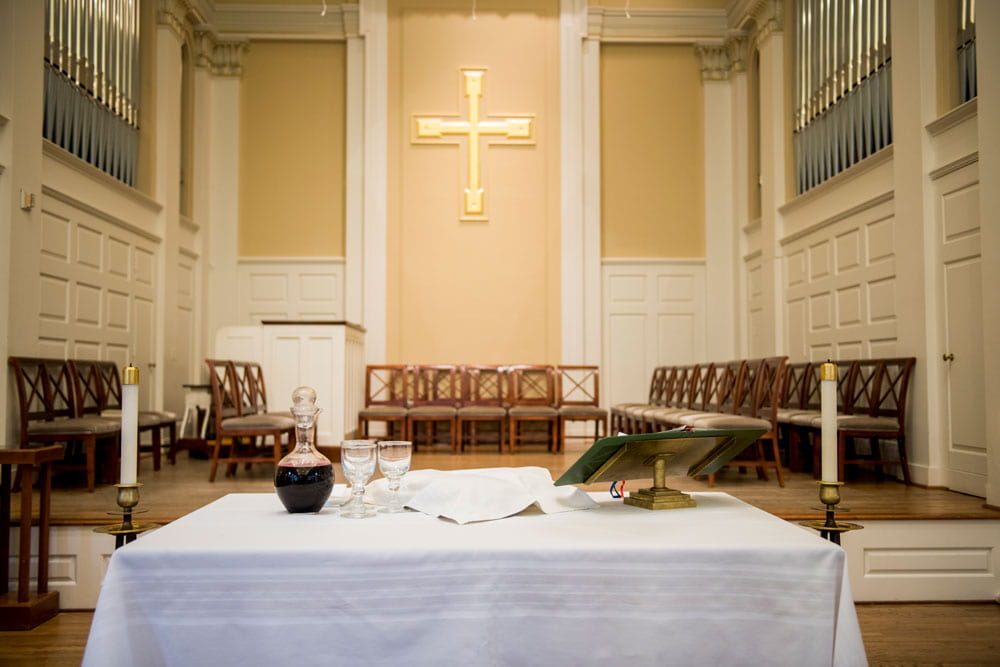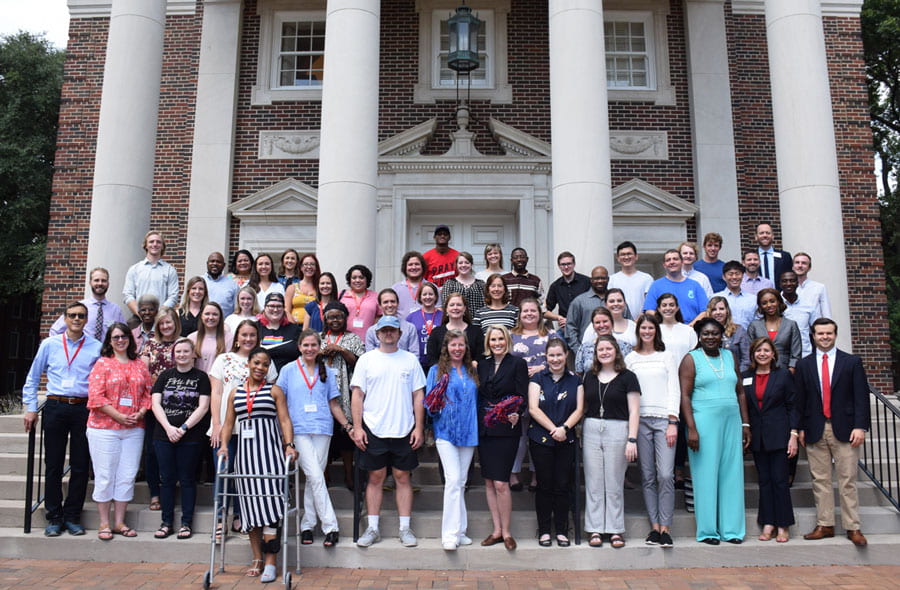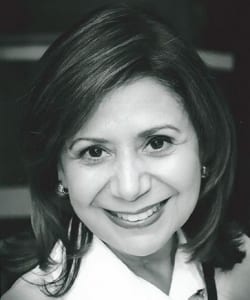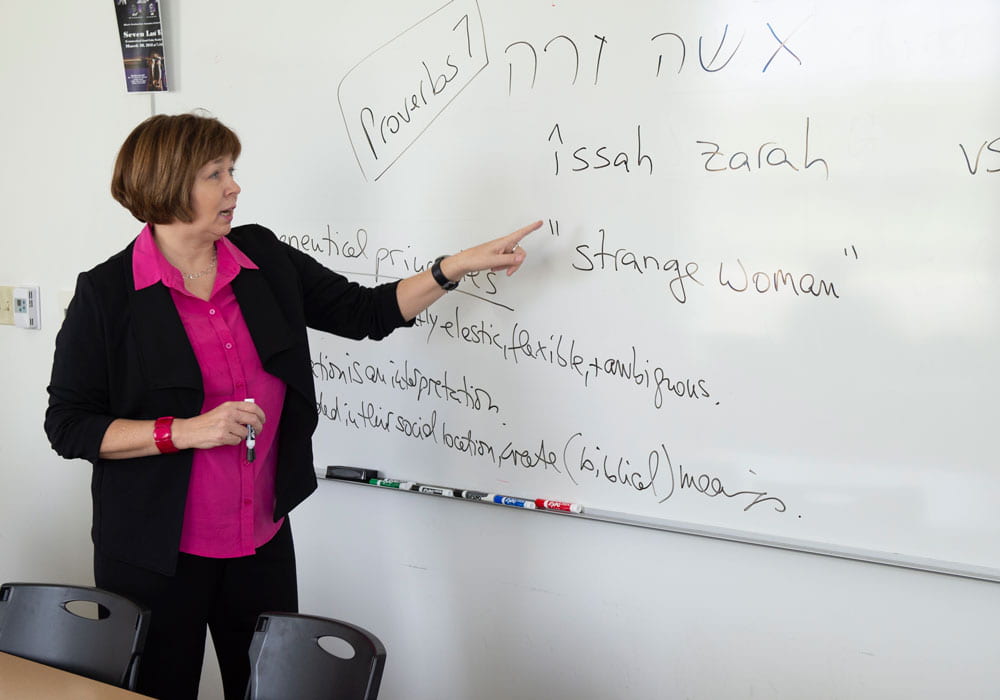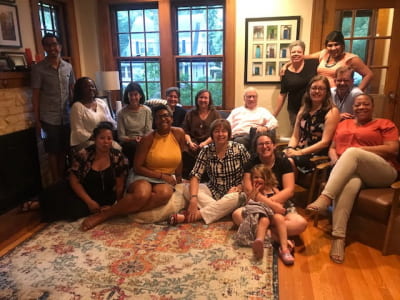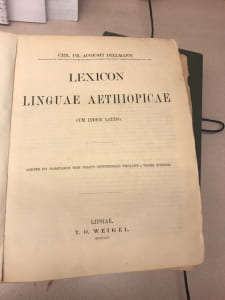Read Perkins Dean Craig C. Hill’s sermon, “What’s Love Got to Do With It?,” preached Aug. 28 at the annual Feast of Beginnings–the first worship service of the 2019-20 academic year, which welcomed new and returning students and recognized new faculty, staff and student leaders.
Read full sermon below or as a PDF here.
What’s Love Got to Do with It?
Feast of Beginnings – August 2019
Texts: Proverbs 27:17; 1 John 4:19-21; Luke 6:27-28, 32-38
The past six months or so have been a tumultuous time, in this country generally and, not least, in the United Methodist Church. They have caused me to reflect a good deal on the character and role of Perkins in such a divisive time. It’s not so much that I have gained new perspective as that I have gained deeper appreciation for and clarity about some things I already believed to be true.
Less than a week after becoming dean in July 2016, five police officers were ambushed and killed, and nine others were injured along with two civilians. It happened right here in Dallas. The first thing I wrote as dean was a brief reflection on that tragic event, starting with one of my favorite quotations from Dr. Martin Luther King, Jr.:
Love is the only force capable of transforming an enemy into a friend. We never get rid of an enemy by meeting hate with hate; we get rid of an enemy by getting rid of enmity. By its very nature, hate destroys and tears down; by its very nature, love creates and builds up. Love transforms with redemptive power.
I closed the short letter closed in this way:
Hatred and killing, the demeaning and demonizing of others, are not the way of Jesus. It is our responsibility to advocate and, especially, to model a better way, however costly. So let us pray as well for ourselves, for the courage to walk faithfully in the footsteps of Christ, the true Prince of Peace.
In the three-plus years since I wrote that, hatred and killing, the demeaning and demonizing of others, have been increasingly normalized, not marginalized. We have seen the ascent of what some have called “the culture of contempt,” in which persons of a differing political or ideological perspective are regarded as enemies, beneath respect, unworthy of engagement, evil and/or stupid.
Like most of you, I have written and said a number of things in response, including in my case a short essay on the subject of grace, from which let me quote just a short section:
Jesus spoke about and, more important, demonstrated the gracious reign of God. And this is something that many religious people found impossible to accept. Why?
For one thing, because grace is unfair. It disrupts our systems of merit and self-constructed identity. It offends our sense of justice – that is, if we regard ourselves as being among the just. To appreciate and to extend grace, you have to know that you are already its beneficiary, that you have been welcomed as you are, not because of your achievements. It meets us, not at the point of our virtue, but at the point of our vulnerability, which threatens our fragile self-assertion.
To receive grace requires a recognition of our own need, our own sinfulness. That is why Jesus could say that “the one to whom little is forgiven, loves little” (Luke 7:47), and why he could tell religious authorities, “Truly I tell you, the tax collectors and the prostitutes will enter God’s reign ahead of you” (Matt. 31:21)…Religion as a system of exchange does not operate within this economy. In fact, it actively, even violently, opposes it.
I wish I could say categorically that, over the past few years, the church has walked faithfully in the footsteps of Christ, that it has modelled grace. Absolutely, some persons and groups have, but many others have slipped—perhaps unconsciously or unwittingly—into patterns of behavior and discourse that reflect the times, not the Savior. I am not singling out any group, nor am I claiming that I am above reproach. There is more than enough blame to go around. All of us need to stop and reflect on the ways our own conduct defaults to tribalism, defensiveness, dismissiveness, and self-righteousness.
Perkins as a community must model something better than the wider society if we are to believe, if others are to believe of us, that we have learned anything of Jesus.
Earlier this summer, I came across Arthur C. Brooks’s book Love Your Enemies. I was primed to hear what he had to say. Since I can’t provide footnotes in the middle of a sermon, let me say that there is quite a bit of that book in what follows, as you will discover if you read it. When I offer a direct quotation below, it is from Brooks.
So, I quote: “Americans have been manipulated and bullied into thinking that we have to choose between strong beliefs and close relationships” (11). According to one survey, one in six Americans is no longer talking to a family member or close friend following the November 2016 election.
Media companies have made untold millions of dollars by encouraging Americans to hold each other in contempt. Contempt is different from anger. “…contempt seeks to exile. It attempts to mock, shame, and permanently exclude from relationships by belittling, humiliating, and ignoring.” Despite our addiction to contempt, it is terrible for us. “…contempt makes you unhappy, unhealthy, and unattractive even to those who agree with you. Hating others is associated with depression.” (15)
Obviously, it also promotes violence, aided especially by the dehumanizing of others. The Nazis called Jews “rats,” the Hutus called Tutsis “cockroaches,” and here we are today, hearing about “breeders” who “infest” this country. A border agent recently was prosecuted for attempting to run over a Guatemalan immigrant with his truck. Any surprise that he referred in text messages to such persons as “subhuman” and “savages”? Such is the thinking that sanctioned slavery and the destruction of indigenous populations, among many other great evils. First you take away their humanity, then you can do with them as you please.
If I ask myself what is most distinctive about Jesus’ teaching that is relevant to this situation, I find two related and radically counter-intuitive, counter-cultural answers. The first is his command to serve, for example in Mark 9:
He…said to them, “Whoever wants to be first must be last of all and servant of all.”
Now, the idea of serving one’s country or, especially, of serving those of higher rank, was well known, the purest expression of that latter being service to God. What was so different about Jesus was his expectation that we would also, even especially, serve those whom the wider culture at least would regard as being beneath us.
Since I have previously said a lot about this subject, I want to direct my attention to the second commandment.
In John 13, Jesus says, “I give you a new commandment, that you love one another. Just as I have loved you, you also should love one another.”
That’s the standard. It’s not mere tolerance, which is way too low a bar.
Note that Jesus did not say, “Just as I have tolerated you, you also should tolerate one another.” Or…
John 13:35: “By this everyone will know you are my disciples, if you tolerate one another.”
John 3:16 “For God so tolerated the world…”
Doesn’t sound quite right, does it?
The problem with the command to love is its familiarity. Think for a moment about the extraordinary quality and character of Jesus’ love, and consider how radical a standard that is, for you personally and for us all together at Perkins. Little wonder we so seldom talk about it.
This expectation appears in perhaps its most challenging form in Luke 6:27 and parallels:
“But I say to you, Love your enemies, do good to those who hate you, bless those who curse you, pray for those who abuse you.”
People in the time of Jesus were perfectly capable of love. Love of one’s spouse, one’s parents, one’s children would have been commonplace. Aristotle and other philosophers could speak of deep friendships held together not simply by mutual interest but by mutual love. Not always easy, but by no means impossible.
But who believed that one should love one’s enemies? How could that be the standard? How is that even possible?
Let’s start by considering we mean by “love.” We most often think of love as an emotion and, in one sense, it is. We talk about falling in love and feeling love—and I’m all for it. Unfortunately, however, feelings come and feelings go—and, in the case of positive feelings, we hope come again. Feelings are inconstant, unreliable companions.
This was captured memorably in George Bernard Shaw’s account of weddings:
When two people are under the influence of the most violent, most insane, most delusive, and most transient of passions, they are required to swear that they will remain in that excited, abnormal, and exhausting condition continuously until death do them part.
In fact, Mr. Shaw, there is little or nothing in most wedding liturgies about feelings. Doubtless, every couple will fall short of the utopian ideal of marriage. One spouse will act selfishly; the other will be unkind. Feelings will vacillate, but it will not be a fall from grace. It will be only a reminder that fullness of love is not a state that lies behind but a goal that lies ever ahead. A wedding is not the realization of marriage; it is the beginning of marriage.
Besides, how can we possibly be commanded to feel something?
Thankfully, we’re not. Particularly helpful here is the definition offered by St. Thomas Aquinas: “To love is to will the good of the other as other.” (13)
To will is to make a choice, to act deliberately, however one happens to feel. So, to love is to act for the benefit of the other–as other. That is, it is not based on our expectation that the other person will change, will conform to our wishes, will please us—will, in other words, cease being “other.” To act with the requirement of change is manipulation. It is transactional. We are doing something for them so that they will do something for us. This is in direct contradiction to the teaching of Jesus in Luke 6:
32If you love those who love you, what credit is that to you? For even sinners love those who love them. 33 If you do good to those who do good to you, what credit is that to you? For even sinners do the same. 34 If you lend to those from whom you hope to receive, what credit is that to you? Even sinners lend to sinners, to receive as much again. 35 But love your enemies, do good, and lend, expecting nothing in return.
How on Earth do you do that?
Let me suggest a practical and then a more basic, perhaps more spiritual answer.
The practical answer: fake it till you make it.
That sounds flippant, so perhaps I should elaborate. Actually, this reminds me of an early journal entry by John Wesley. He met Peter Bohler at Oxford, whose preaching filled Wesley with self-doubt. Wesley wrote,
Immediately it struck into my mind, “Leave off preaching. How can you preach to others, who have not faith yourself?” I asked Bohler whether he thought I should leave it off or not. He answered, “By no means.” I asked, “But what can I preach?” He said, “Preach faith till you have it; and then, because you have it, you will preach faith.”
We could just as easily say, “Act in love until you feel love, and then, because you feel love, you will want to act on it.”
Indeed, recent research has conclusively demonstrated that it is far more often the case that feelings follow actions, not the reverse. For example, psychologist James Laird discovered that asking people to smile, whether they wanted to or not, activated the parts of the brain that stimulate positive emotions. (55)
This is the underlying basis for cognitive behavioral therapy, which has demonstrated, among other things, that if you start behaving like someone who is down, you’re going to start feeling down. (56) Similarly, contemporary studies of happiness have shown the profound effect a deliberate practice of gratitude has on us. Subjects who were required to keep a daily journal of things for which they were grateful were, over time, significantly more satisfied with their lives, and even got more and better sleep.[i]
All of which reminds me of a story I heard many years ago. A woman once sought counsel from Dr. George W. Crane, the psychologist, confiding that she hated her husband and intended to divorce him. “I want to hurt him all I can,” she declared firmly.
“Well, in that case,” said Dr. Crane, “I advise you to start showering him with compliments. (In this and other ways, treat him as though you love him.) When you have become indispensable to him, when he thinks you love him devotedly, then start the divorce action. That is the way to hurt him.”
Some months later the woman returned to report that all was going well. She had followed the suggested course. “Good,” said Dr. Crane. “Now’s the time to file for divorce.” “Divorce!” the woman said indignantly. “Never. I love my husband!”[ii]
Of course, this particular story has a happy ending, which is by no means guaranteed. Finally, the only one we can control is ourselves. Still, such self-giving love can be enormously attractive. And no wonder: is not judgmental but forgiving; it builds bridges, sees the best in others, is not manipulative and is not domineering. What’s not to like?
To be Christlike is to choose to behave in just such a way. It requires practicing this behavior until it becomes second nature, until, as Paul put it in Philippians 2, “we have the mind of Christ.”
So, that’s one answer to the How? question. You put the horse, your actions, in front of the cart, your feelings. You choose to will the good of the other as other. You act in love.
But there is a more basic answer. How do we get the strength even to make that choice?
The key is in 1 John 4:19, “We love because God first loved us.”
I refer often to the foot-washing story in John 13. The disciples were in a position of profound weakness. Who they were was based on who others, primarily their competitor disciples, thought them to be. Jesus was the only one in the room who already had a strong identity not grounded in human opinion. So he could serve, he could love, without loss of self. He could pour himself out, because he was already full.
A lifetime of ministry cannot be built on the shaky foundation of human approval. We should love, not because it makes others like us, but because we ourselves already experience the enduring love of God in Christ. As the hymn says, “All other ground is sinking sand.”
That includes academic achievement, by the way. Universities can be wonderful places, but they also can be hotbeds of defensiveness and mean-spiritedness. If my identity is formed around my being the smartest kid in class, what happens when someone smarter shows up? What happens when my ideas are questioned? In such a system, to be right is to be righteous, and to be questioned is to be threatened. At least, that’s how it can be, not how it has to be.
“We love because God first loved us.”
We come to know the love of God through prayer, contemplation, worship, and study. Indeed, it’s hard to love someone with whom you never spend time. Such prayer was Jesus’ habit, the “solid rock” beneath his own ministry.
We also experience God’s love through others. This is not the same as receiving approval. On the contrary, it happens most plainly when we are loved unconditionally, when we are forgiven, when we are offered and have the good sense to receive grace. For many, the love of God can be believed only when it is first manifested by others. We all have the enormous gift, opportunity, and responsibility of being conduits of God’s love in this world, even or especially toward those who do not seem to deserve it, toward those who oppose us, who test us, who exasperate or even threaten us.
How might this love be manifested at Perkins? Let me count the ways. Well, no, there isn’t time, but I will say just a little to get us started.
First, get to know people who are different from you. Make it your priority to understand them, not to change them. If you do that, you will be enriched, and your own thinking will be sharpened, as “iron sharpens iron.” I am by no means advocating a retreat from one’s commitment to truth or to justice. It is my experience instead that both truth and justice are most fully met when approached with love. Love allows us to hear new truths and to speak truth in a way that can be heard. Love keeps justice from degenerating into vengeance.
Holding ourselves in ideological silos encourages weak thinking, which you see a lot of in America today. If you spend all of your time around only people with whom you already agree, you will not be challenged to think deeply. Moreover, if you put someone in a threat state, their prefrontal cortex largely shuts down, and they become nearly incapable of learning. Instead, they will more than likely be reinforced in their disagreement. Not many people come to insight via insult. Open hearts create open minds. Show someone that you respect them, that you care for them as a person and not as a trophy to be won, and you will have a whole different kind of conversation and relationship.
This goes for all of us. It should affect how faculty treat students, but also how students treat faculty and fellow students, and how all of us treat staff. It has to do with what we say to others about each other, and what we post online. It does not mean that we are all going to agree. We are human; that’s just not going to happen. But it does mean that deep disagreement and deep fellowship can and should coexist. It means that we learn to define ourselves more by what we have in common than by our differences.
I have worked with a very wide range of people on multiple faculties, and there was not one from whom I could not learn something important. I want to challenge our new students in particular to approach each other with this expectation. It’s easy to see the ink blot on the page, the obvious point of difference, but what are we missing when we focus only on that? There is more to each of us than our most questionable opinions.
In sum: if we choose to act this way, we’re going to learn more, teach more, grow to be more like Christ, and, incidentally, feel better.
I promise you, it’s going to be good. Amen.
[i] See for example the recent work of Shawn Achor.
[ii] I recently found this repeated at https://www.family-times.net/illustration/Love/200161/.



